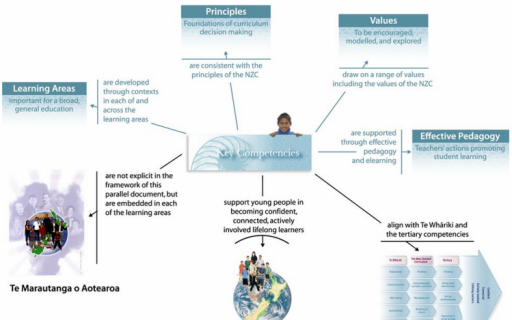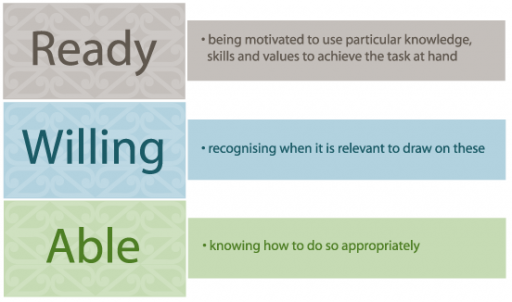Key competencies matter because things have changed. Since our education systems were first established there has been enormous change in the nature of societies, change in the nature of work, change in how knowledge is viewed, and change in technologies, to name just a few. Those changes, and the certainty of ongoing change, have implications for the kind of education our young people require. The key competencies put today’s students at the centre, and bring a future-focused perspective to teaching and learning.
Video - Why do key competencies matter? (duration 2:11) Secretary for Education Karen Sewell explains the importance of building an education system that helps students learn how to learn and to manage the demands of a profoundly different world.
Key competencies matter because they support dispositions that will enable young people to learn well now, and to go on learning throughout their lives. Margaret Carr explains that dispositions mean learners are ready, willing, and able:
It is no longer sufficient for students to merely acquire knowledge and master skills. Students need opportunities to develop their capability as users of knowledge and skills in wide-ranging contexts now and in the future.
They also need to be capable of using those competencies in diverse contexts – at school, in the community, at home, with friends, with peers, in mathematics and statistics, in the arts, and other learning areas.


